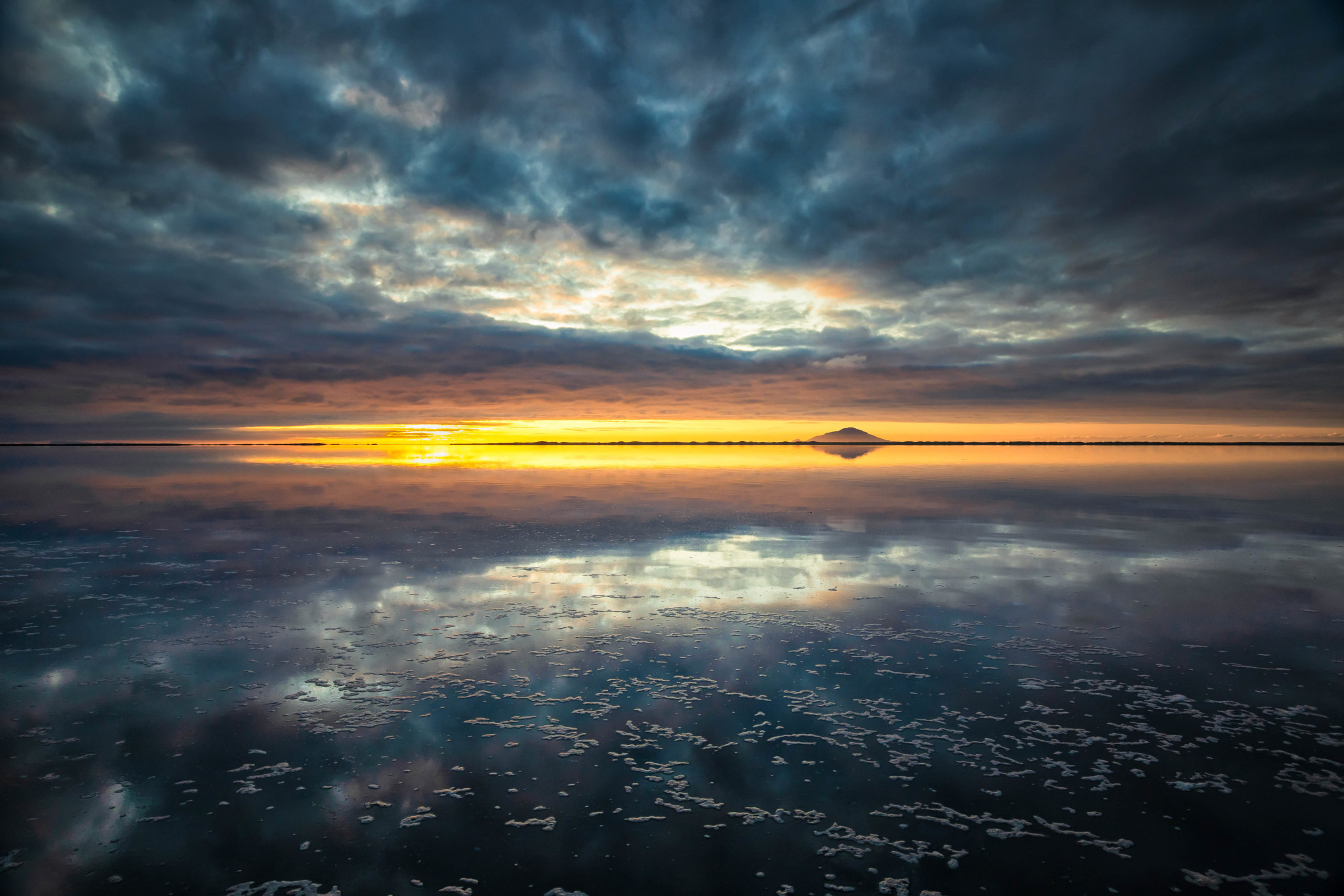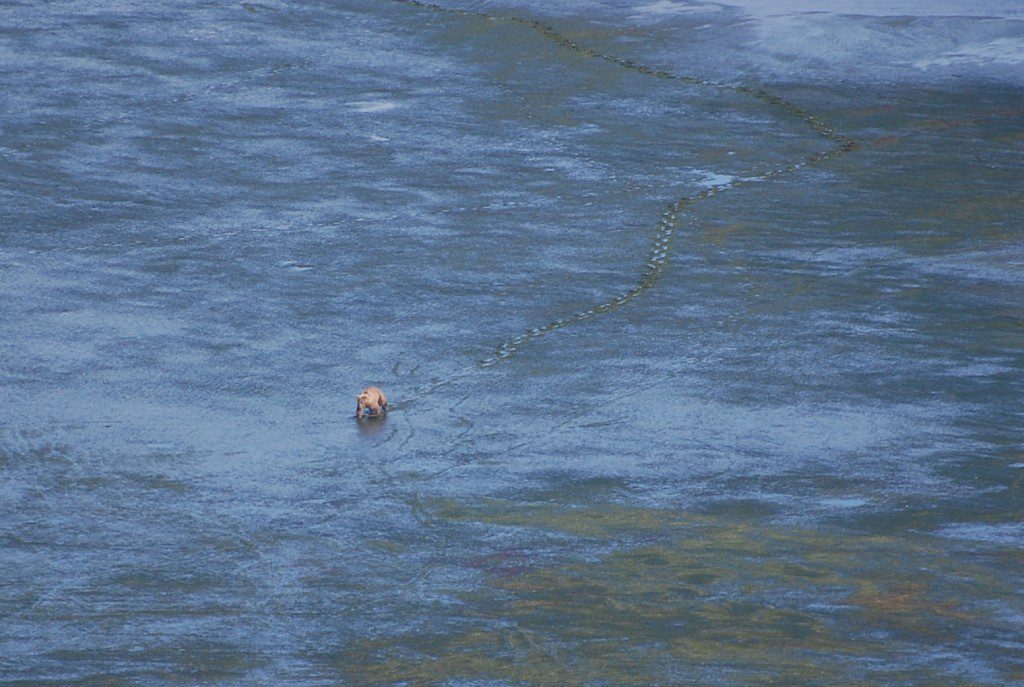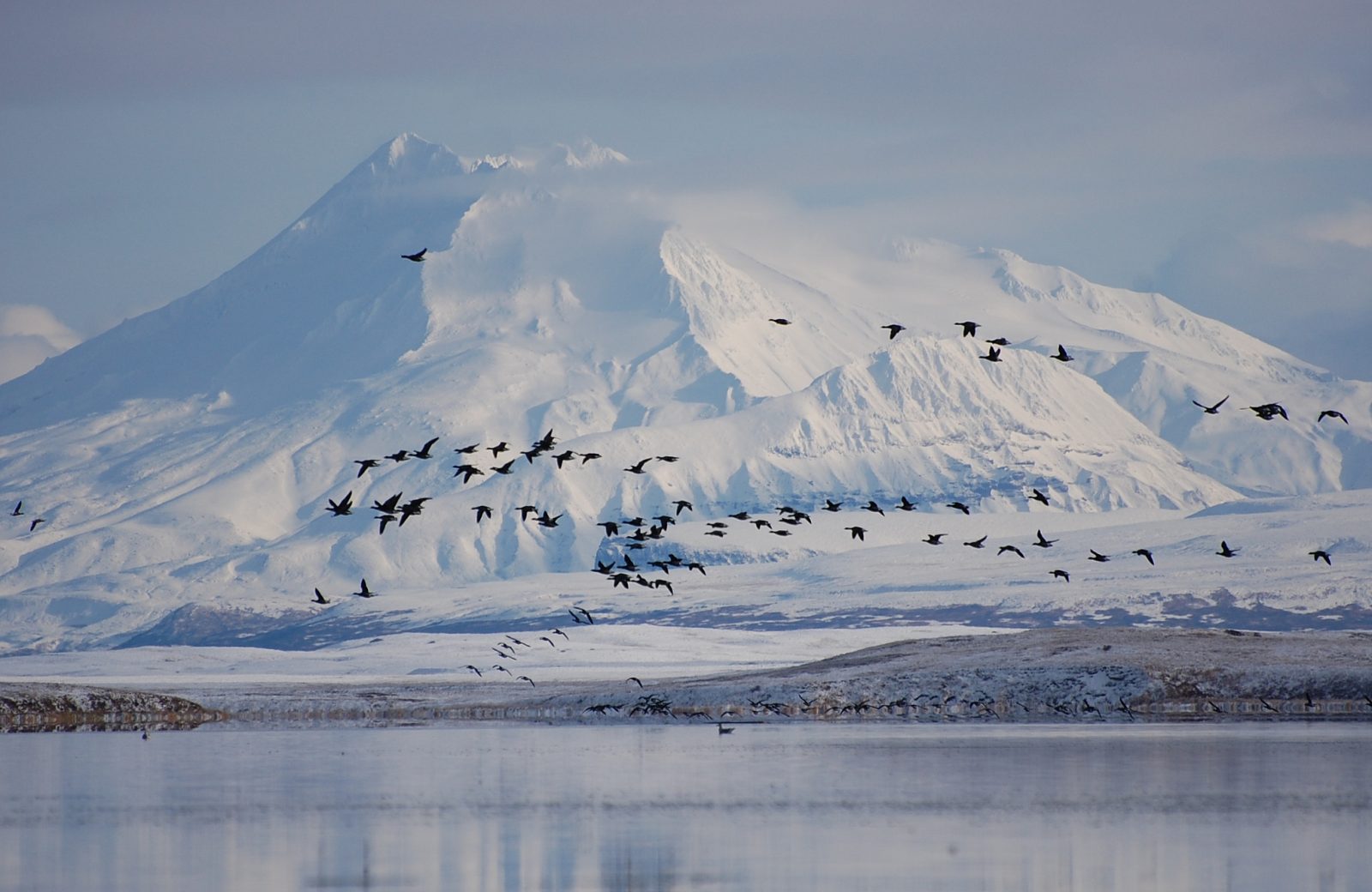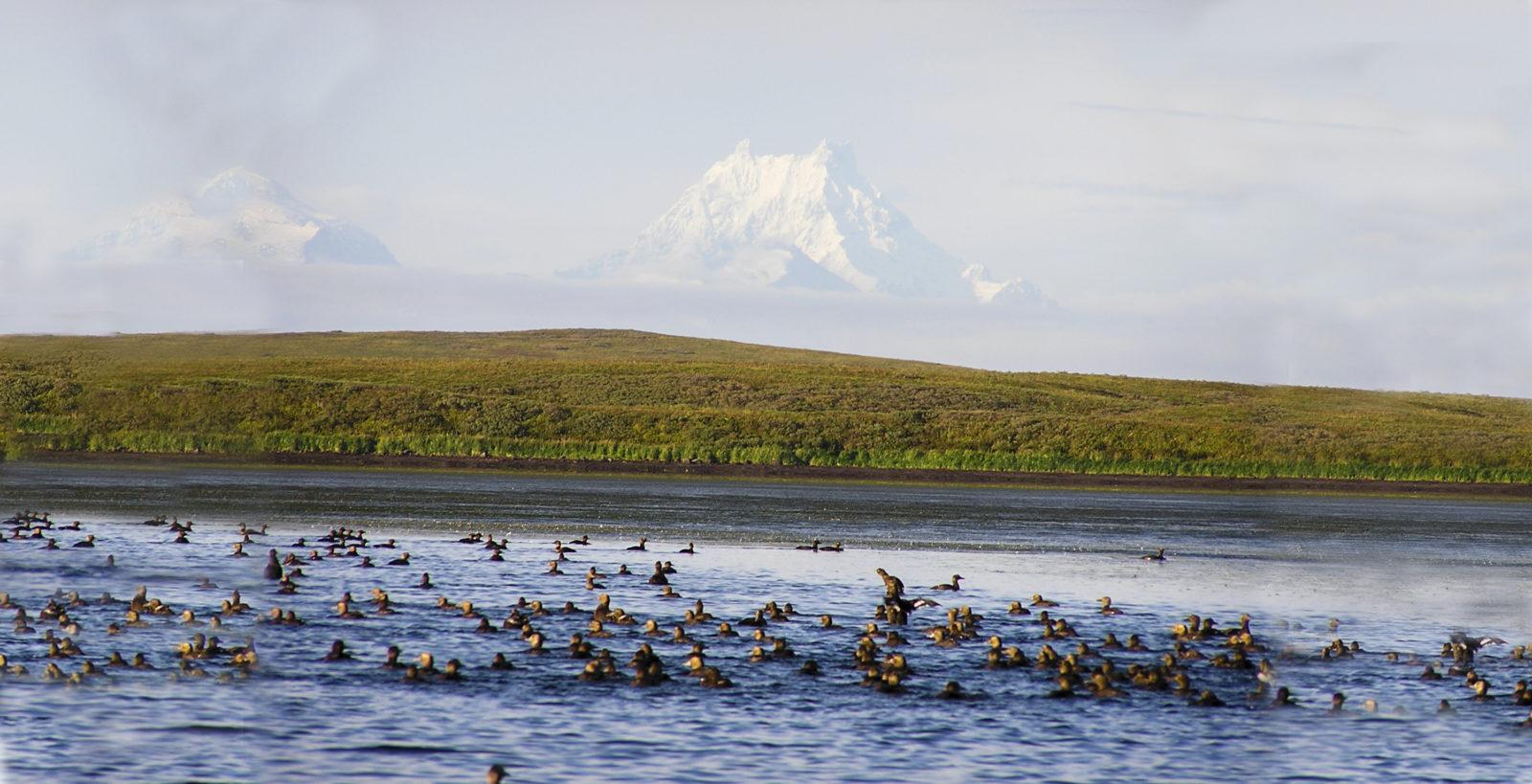
When the Secretary withdrew a land exchange that traded away vital wetlands in Izembek Refuge, did it put this issue to bed? Not yet.
By Dawnell Smith
Secretary of the Interior Deb Haaland announced on March 14 that the department would withdraw from the land exchange between the Interior Department and King Cove Corporation authorized in July 2019.

This is great news. It means that Izembek National Wildlife Refuge remains protected and intact–for now.
Sec. Haaland also said that her decision does not foreclose consideration of a future land exchange to address King Cove’s concerns.
How does the withdrawal of the land trade relate to the legal battle?
This Interior decision relates to a 2020 lawsuit we won in U.S. District Court, which voided the land exchange. Trump’s Interior Department appealed that court ruling and the Biden administration defended it before the U.S. Ninth Circuit Court of Appeals. A three-judge panel of the Ninth Circuit Court issued a 2022 ruling allowing the land swap.
We filed a petition for a rehearing en banc before an 11-judge panel of the Ninth Circuit Court and argued the case in December 2022.
It’s important to emphasize that the land exchange in this case threatens national parks and wildlife refuges throughout Alaska, and the very fundamental conservation and subsistence purposes of the landmark law known as ANILCA would be gutted.
Until the court rules, we can’t rest.
What happens next with Izembek?

The Department of Justice filed a motion to dismiss the case before the full Ninth Circuit Court Friday, and all parties to the lawsuit have a chance to respond by Monday, March 27th. If the Court dismisses the case as moot, Izembek will be protected from a land exchange, at least for now.
There is still intense pressure to push a land trade of some kind to build a commercial road.
Those supporting the road seek a transportation corridor between Cold Bay and King Cove, a community at the end of the Alaska Peninsula where the mainland ends and the Aleutian Chain begins.
Like dozens and dozens of communities in Alaska, King Cove is only reachable by boat or plane via a small airstrip.
There’s a larger runway at the former Cold Bay Air Force Station, however, and seafood processors and other commercial interests have been proposing a road linking King Cove to Cold Bay for decades. Other proponents argue a road would allow them to drive to the Cold Bay airstrip to get emergency flights to health care facilities, though studies show that other transportation options like ferries would be more reliable.
Truth is, any land exchange that puts a road in Izembek would have devastating impact on the animals that live there and the communities that rely on the region for subsistence purposes. It could further pit commercial infrastructure like roads and mines against conservation and ecosystem health not just in Izembek, but in other parks and refuges in Alaska. You can bet we’ll continue watching and responding to what happens next to continue protecting Izembek and all federal lands in Alaska from commercial projects that will irreversibly harm land, water, animals, and people for generations to come.



